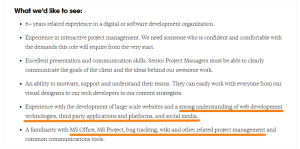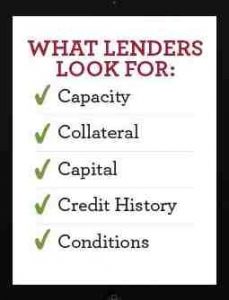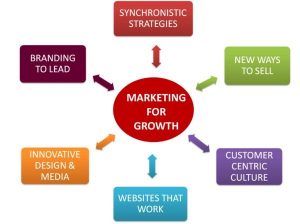— October 3, 2017

Facebook is one of the most visited websites in the world. With over 1.4 billion users, it’s definitely a top internet destination.
Though Facebook started out as a social network, its value has become apparent with such a large, growing user base: advertising. It turns out that the billions of users reporting their preferences and behaviors is an excellent foundation for the perfect marketing platform. As a result, Facebook has one of the largest sets of global marketing data in the world.
Because of this, Facebook has turned into an effective, inexpensive platform for hyper-targeted marketing. With over 40 million business pages now on the platform, advertising based on big data has never been easier. Reaching millions of people with your business proposition can cost a few cents per click instead of millions of dollars.
Before inexpensive internet advertising was a thing, you’d likely pay hundreds of thousands of dollars to a TV network or radio station for ad placements. What’s more is that you’d probably be guessing about your target market in this scenario. On top of this, it would be incredibly difficult to test ad copy, images or targeting on the fly without spending even more money. Effective advertising, though well-researched and funded was more of a shot in the dark reserved for the big brands that could afford it.
With the rise of the internet and related search engines, services like Google Adwords began helping small businesses advertise with reasonable costs. Fast forward and the major players with big budgets are starting to take over this space as well. With larger advertising budgets, they are in a better position to consistently outbid the small business owner. Furthermore, their clout and back-linking strategies give them even more preference in the search engine rankings.
Though there’s still room to reach potential customers via traditional search engines like Google, Bing or Yahoo, it’s getting more difficult and expensive to do so. Enter Facebook marketing.
Facebook has leveled the playing field in advertising with the tools and analytics that make targeted, effective marketing affordable and within reach of even the smallest business owner. With the added bonus of being able to advertise on Instagram, the ability to reach even more people makes Facebook marketing more attractive than ever.
Monica Louie is a Facebook ads coach that helps clients create marketing strategies especially designed for the social media network. She believes that advertising on Facebook is a wise use of a marketing budget, “For a fraction of the cost of traditional advertising methods, small businesses can leverage the advertising tools Facebook offers to create genuine relationships with their ideal customers.”
Monica highlights the importance of being able to target the right audience when it makes sense to do so, “Through specific targeting strategies and meeting potential customers where they spend their time (on social media), small businesses can create campaigns that show their ads to the right people at the right time.”
One of Monica’s coaching clients, Deacon Hayes of Well Kept Wallet, has grown his online presence and revenue substantially via Facebook advertising, “The beauty of running Facebook ads is that anybody can do it. You don’t need to have a large marketing budget, even the little guy can use it to grow his business.”
He goes on to explain the “secret sauce” of successful ad, “ You just need to figure out how to provide quality ads that compel people to engage with them and then create the funnel to turn those leads into paying customers.”
So now we know how great Facebook is for advertising let’s examine the features and tools Facebook provides to business customers to make this all possible.
Super Segmenting (Targeting)
This is perhaps one of Facebook’s most powerful features. Creating “audiences” with characteristics you are targeting for your ads. A few years back, Facebook also added offline behaviors through Partner Categories as well. All of this data helps you create neat intersections of online and offline behaviors for an ideal market you’ll target in your ads.
The best part? It gets pretty granular. For example, if you’re a wedding photographer, you can find people in a defined geographical area who just got engaged (and you just thought Facebook cared about those life events because they loved you!) You can find new parents or people who like certain activities like fitness or crafting.
You can even examine your target market’s online behavior in terms of engagement and purchasing. Are they more likely to click or comment on posts? Do they use a bank card or credit card when making purchases online? Are they inclined to purchase clothing or subscriptions? You can mine for this data with tools Facebook provides (for free) to businesses looking to advertise on the platform.
The Audience Insights tool helps you find affinity categories and super niched-down interests for demographics most likely to respond to your advertising efforts. Let’s say you have a self-help brand that caters to entrepreneurs and small business owners. You can find similar brands and personalities and find related affinities to target:
In this example, we can see that people who like Gary Vaynerchuk, a famous internet marketing guru, also like Tim Ferris, Grant Cardone, Tony Robbins and other similar types. Ideally, you’d use the fans of these pages to build your target audience.
This is a super-simplified example of targeting but hopefully it illustrates the powerful features that can make your marketing strategy extremely precise. There’s so much more you can do to find the perfect audience to target for your product or services.
Lookalike Audiences
But wait, there’s more! Let’s say you can’t really pin down an audience with the Audience Insights tool but you already have an email list, blog post or product that’s performing well in terms of engagement and conversion.
For example, you can give Facebook your email list and ask them to create a Lookalike Audience based on the characteristics that in that list. The Lookalike Audience is a new set of people who would be interested in your business because they are similar to your existing client or lead database.
You can do the same with a post or product page. If you install the Facebook pixel on your website it will detect users who visit your site. Using data picked up by the pixel, you can either retarget those web visitors or ask Facebook to create a Lookalike Audience. You can even filter the pixel for a certain page (i.e. people interested in your DIY toy train kit or high-protein honey bars.) This is called remarketing and it’s an incredibly effective method of using Facebook for advertising.
Analytics
If you’ve got ads running on Facebook you’ll eventually need to tweak them based on your audience’s response. Actions like clicks, shares, comments or likes get captured by Facebook’s Ads Reporting tool.
You can drill down on reports that tell you how much you’re paying for things like clicks and shares along with the demographics of those responding to your ads. This information not only helps you create better ads for improved reach and engagement in the future but it helps keep your costs down. (The more people engage with your ads, the lower your costs.)
The analytics help you understand, in real time, the effect of changes you’ll make to your ad copy, images, targeting, etc. Though Facebook ads can take time (and money) to test, the beauty is that the analytics help you pivot quickly if something is not working (i.e. your ads become too expensive.)
Power Editor
You can use the Ads Manager to create and manage your Facebook ads. This tool is helpful for people who are unfamiliar with Facebook marketing. It has a tutorial like interface that can become cumbersome and time-consuming for the ad-creating pro.
For the more seasoned ad creator, there’s the Power Editor. Once you realize the robust nature of Facebook advertising, chances are, you’ll want to put your ad creation and management on steroids. That’s where the Power Editor comes in. Facebook explains the capabilities, “Power Editor allows you to create many Facebook ads at once and have precise control of your ads. With Power Editor, you can edit, duplicate and manage multiple ads, find what you want to work on quickly with search and filters and import new ads using Excel.”
Canvas
You can create FaceBook ads with video, slide shows, a single image or a carousel of images. Now, Canvas ads allow you to combine all of these elements to create a “full screen” experience for more interactive, engaging ads. The templates Facebook provides, helps you create these ads quickly and simply.
Canvas creates fast loading video with the objective of better engagement for ads. According to Facebook, these interactive mobile ad experiences are designed to help businesses acquire new customers, drive awareness, and inspire mobile shopping.
Facebook Blueprint
Blueprint is Facebook’s method of educating businesses on Facebook and Instagram marketing. This is especially valuable for business owners who want to start using Facebook ads but feel totally overwhelmed.
Though there are many proprietary resources and private tutorials that offer similar training on Facebook marketing, it’s always a good idea to get a foundation in place with official Facebook training content. Facebook’s marketing interface and policies change rapidly, so it’s a good idea to go straight to the source when it comes to learning how to use the platform and staying abreast of marketing policies.
Closing Thoughts
Facebook Business is doing a great job of educating marketing professionals and developing tools to help serve their marketing needs. However, it’s important to know that this isn’t a silver-bullet strategy. It takes time, effort and money to test the marketing waters with Facebook.
Those that will be successful with Facebook marketing will use it as part of a long term, integrated marketing approach. Envision your business goals, then include Facebook marketing as a piece of your outreach puzzle for best results. Afterall, Facebook is still an excellent, inexpensive way to expose your business and help it grow.
Digital & Social Articles on Business 2 Community
(61)
Report Post






